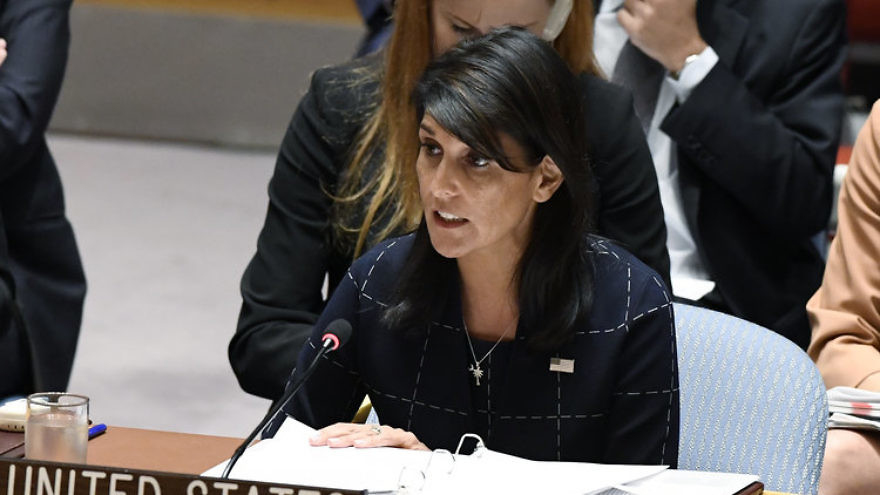Nikki Haley may no longer be the United States’ permanent representative to the United Nations, but her passion for defending Israel remains as strong as ever.
The Jewish community in the United States and Israelis by and large treated Haley as the superstar of the Trump administration because she relentlessly took the United Nations to task and put a mirror in front of the international organization, revealing just how biased it was toward Israel.“”
Haley sat down for an interview with Israel Hayom editor-in-chief Boaz Bismuth on Thursday in New York. The following are excerpts from the interview.
Q: Later this month, the administration will roll out the economic component of its peace plan. Some in Israel are worried that the U.S. would want something from Israel in return for recognizing Jerusalem as its capital and recognizing its sovereignty over the Golan Heights. Should Israel be worried about the plan?
A: “Israel should not be worried. Because through the Middle East plan, one of the main goals that [Senior Adviser to the President] Jared Kushner and [U.S. Special Representative for International Negotiations] Jason Greenblatt focused on was to not hurt the national security interests of Israel. They understand the importance of security, they understand the importance of keeping Israel safe. I think everybody needs to go into it with an open mind, everybody should want a peace plan. Everybody should want to make way for a better situation in Israel and I think it can happen. So rather than pushing back against what we don’t know, I hope everybody would lean in on what the possibilities […] of the peace plan could look like and think of a better life for everyone.”
Q: Knowing the two sides and all the actors in the Middle East, does it have a chance?
A: “I am an optimist. It’s not going to be easy. Both sides won’t love it. And both sides won’t hate it. But both sides have to want peace. And if they do, they will be deciding the details. Not the U.S. And I think it is worth taking that chance. It is worth trying for. At this point, it is hard to see an opportunity in which Palestinian Authority President Mahmoud Abbas is even going to come to the table, and I think that … it shows Abbas’s true colors. It shows the Arab community’s true colors, that they [the Arab states] don’t really care about the Palestinians, because if the Palestinians were that much of a priority, everybody would be holding Abbas’s hand and leading him to the table. Everybody and Abbas himself would want better.”
Q: Are you familiar with some of the details of the peace plan?
A: “I have read the plan, yes.”
Q: So you shared your opinion and advice on it?
A: “I read the plan and think it is very thoughtful, and very well done and it very much takes into account both sides’ vulnerabilities and both sides’ wants.”
Q; How is life outside the United Nations?
A: “It is nice to be a private citizen for the first time in eight years. That has been really nice, to bring the stress level down. But the issues I care about didn’t go away, and the issues that I fought for are still very strong.”
Q: Is the United Nations an important institution?
A: “I think the question is, does the U.N. want to be an important institution. Right now it is very wasteful and very bureaucratic, it can be strongly anti-U.S. and clearly anti-Israel. So what I said to the secretary general and what I said to the ambassadors when I left was, ‘The sustainability of the U.N. depends on those elements.’ If they change with the times, the U.N. will be relevant. If they start talking about things that are uncomfortable, to talk instead of the decades-old problems that we have always talked about, they can possibly move, but if they continue going down the path they are on, it’s very hard to see how they’ll continue with effect.”
This article first appeared in Israel Hayom.























